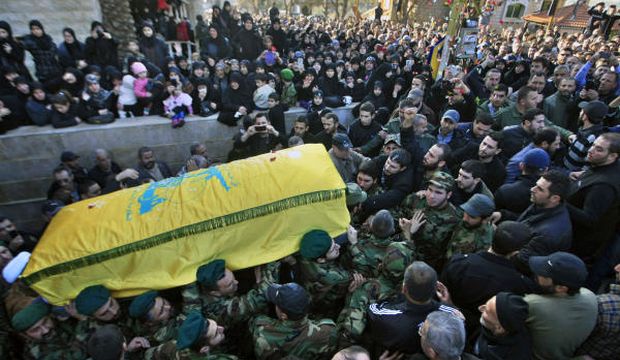Many have welcomed with cheers the sudden Israeli strike on Sunday that killed six Hezbollah members and a general in the Iranian Revolutionary Guard Corps who, for some reason, were secretly present in Syria’s Quneitra region.
The cheering for this act on social networking platforms is an expression of anger and indignation, and we’ve even sensed these feelings expressed by sympathizers with Islamist groups.
This represents a huge change of feelings about Hezbollah, due to its heinous actions in targeting its rivals in Lebanon and its involvement in the killing of thousands in Syria. Many of those who have shifted from admiring Hezbollah to hating the group did so in less than a decade.
These people used to support Hezbollah in Lebanon in the past and they used to adopt the Shi’ite group’s political and military agenda. Anger began to surface when Hezbollah’s militias occupied west Beirut during the events of May 7, 2008, three years after the party’s involvement in the assassination of Sunni leader Rafik Hariri.
Hezbollah, and also Iran, have lost the respect and status they’ve always enjoyed in the name of Islam, Lebanon and Palestine. Hezbollah’s biggest fall came after its clear sectarian bias in Syria emerged when its members joined the terrible war there, which has killed more than 250,000 people in what is surely the most shameful crime in the history of the region. Iranian involvement in Syria will also have further repercussions.
In my opinion there’s no doubt that if a confrontation occurs between Israel and Hezbollah, or between Israel and Iran, many Arabs will pray for the defeat of Hezbollah’s militias and the generals of its Iranian ally. This strange feeling, even if temporary, reflects the change in the region’s alliances and political stances.
The hatred held by many Arabs towards Iran and Hezbollah does not necessarily mean they have suddenly developed affection for Israel—that’s another story. Perhaps this would happen in the event of the brokering of a Palestinian–Israeli peace accord that garners more popular acceptance than before.
In case a regional struggle happens, like an Arab struggle with Iran, and Israel is an apparent party in the Arab camp, people will, I believe, turn a blind eye to a temporary alliance under the principle of “my enemy’s enemy is my friend.” Once again, this does not mean that Israel will be accepted by Arabs on the popular level—unless there is a peace deal with the Palestinians.
We are in a now in a phase where the map and alliances drawn of after 1948 are in transition, and the struggles and hostilities in the region may be shifted in a totally different direction. Iran and Hezbollah may be on the side of the Jewish state if a nuclear agreement is signed with the West that satisfies Israel, which is now considered an obstacle due to its strict stance against American concessions to the Iranians.
In case of a US insistence on reaching an agreement with Iran that angers Israel, the latter could realign itself towards Arab countries to achieve the necessary regional balance. Israel is currently participating, from a distance, alongside an alliance that’s publicly pressuring the administration of Barack Obama against offering any concessions in negotiations with Tehran; however, we can’t count on the formation of an Israeli–Gulf alliance because Israeli disputes with the Arabs of the Gulf regarding Palestine and Syria are not only serious and numerous, but will also be difficult to overcome.
